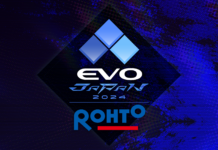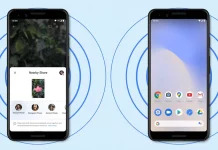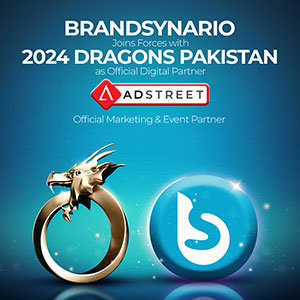Some months ago I attended a seminar on roughly the same topic, in which one of the speakers (an Agency man) made the assertion that “Digital is in the centre of everything we do.” For a brief while, it sounded quite grand and new-age. Then I got thinking about what it really meant, or rather, did not mean.
And to my simple mind, it began to sound more and more as if the cart was leading the horse, and as if just by these simple mechanics, market success would be achieved.
Let me elucidate my philosophy on this. I am a firm believer that at all times, despite (or perhaps because of) whatever technological advances in the world that have impact on the marketing and marcomm businesses, it is not the technology but the consumer that should be at the centre of everything happening in this sectors does.

Since the ultimate measure of success is not which technology/medium you used, but that of your marketing efforts, it begs the question: were you able to persuade and motivate your customers to choose your brand over your competitors’?
Do not get me wrong: the explosion of digital technology and the concurrent tsunami of the Information Age are both enablers of marketing success to which perhaps no other technology has even come close. But in that great wave lie the seeds of its own possible failure, or more correctly, lack of the spectacular success that everyone seems to automatically associate with the embracing of this technological Sesame Cave.
Why do I say that?
First, let’s understand what “Digital Marketing” means, and the answer is nothing. To my mind, it is as flawed a concept as, say, “TV Marketing” or “Radio Marketing”. The latter are expressions I do not recall ever having heard or used, and yet, in their time,
especially when commercial TV burst upon the scene, they were as cathartic for the marketing world as newer technologies should be.
But did every marketer achieve success by using TV or Radio in his marcomm plans? And the answer, of course, is no, despite, I am sure, quite a few people believing that since they had committed to commercial TV in a big way, success would automatically follow. In other words, “Digital” was and is just another medium, which needs to be used optimally for it to prove successful. A boring TV ad is as useless as a boring banner on a website or a convoluted engagement process…and the ability to zap to somewhere else is ubiquitous.
Thus, let’s understand what “Digital World” really means, and in a sense one sees it again through the prism of a “TV World”. Of course the impact power of a Digital World (or more aptly, a digitally-enabled world) is exponentially greater than TV/Radio etc, due to the real time continuous engagement possibilities it offers, but again it is the incisive use of this power that matters more than the possibility itself, rather like the use of the same cricket bat by a Brian Lara rather than a club level cricketer.
My submission, therefore, to this debate is simple: like always, the route to (or perhaps even the root of!) marketing success lies in how meaningfully a marketer ‘engages’ with his customer, whether a current one or one that he is wooing. And of course ‘engagement’ is a two-way process. Meaningful engagement happens when the customer’s self-interest is at the centre of the engagement process, and to my mind, this is the true challenge (and opportunity) of Marketing in a Digital World.
So here are my predictions of what it will take to be successful in this new marketing age:
1) From ‘Targeting’ to ‘Pinpointing’: The intelligent use of Data Analytics will be crucial in ensuring the right engagement strategy and plan for the right customer, and the ability to track preferences and use of digital media and content is enormous and growing so that efforts are just not ‘targeted’ but ‘pinpointed’.
2) Content is really King: Like a matrimonial engagement, attraction leads to choice; similarly, really knowing and empathizing with your customer/s will lead to the right content in the marketing engagement, content that will persuade the customer to come back for more. You cannot bore a customer into choosing your brand, but you can bore him to tears!
3) Mass Customization is not just possible, it is inevitable: More and more, a customer will want to be treated not as a statistic, but as an individual, as a ‘person’, not as ‘people’. Therefore I said ‘empathizing’ because at the heart of any great marketing effort lies the ability to empathize with and cater to the needs, wants, desires, trials and tribulations of a person.
4) A “Service” ethic will become the norm: Perhaps the one great failure of most marketers, especially in India, is the inability or apathy to provide true customer ‘service’: by this I mean not just after-sales-service (which in any case is mostly poor), but pre-sales and during-sales. Imagine what a customer feels when he gets a text from his mobile telephony provider asking him to opt into a scheme, and when he does, bang comes another text saying he doesn’t qualify to avail of said scheme! It happened to me, so I speak with experience.
5) Accountability, Youth and the Social Network: The planet, especially the emerging sections of it, is young. The Youth today are less forgiving of shoddy performance, whether it be products or services (the political change in India commencing with Delhi is an example), and social media allows them to voice their displeasure in real time too; and marketers will be hoisted on their own petards and more swiftly today if they slip up, over-promise or take their customers for granted. A digitally-enabled world allows marketers to deliver more consistently, and make restitution for lapses, if any, quicker. The question is, which marketer is diligent enough to do all this?
6) Harnessing Mobility will be key: In developing markets such as India, access to the wired internet will remain low for some time, so the marketer who can transform mobility into a true marketing enabler (in all senses, whether information, content, transaction, service) will prosper. It may be a cliché to say that the mobile phone is one instrument that almost everyone has almost 24×7, but very few have harnessed the power of this ubiquity.
7) Finally, my own take of the Theory of Relativity: E = MC² is really a representation of the mantra every marketer will inevitably chant as Engagement = Medium x Content². As always, in any sphere and in any context, attitude is critical: doing the hard yards is now more imperative for marketers to be successful because technology has made it a truly level playing field. So while the consumer is still not king, especially in countries like India, he is surely at least akin to the Prince of Wales. Now if only marketers too don’t make them wait forever to be king!
SUNIL GUPTA
CEO, Igniva Consulting India (www.ignivaconsulting.com)
Managing Partner, South Asia & Africa, Results International Group
(www.resultsig.com)
Regional Director, South West Asia, APRAIS Worldwide (www.aprais.com)






































